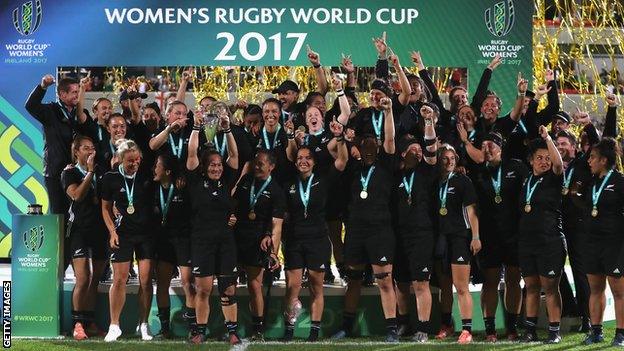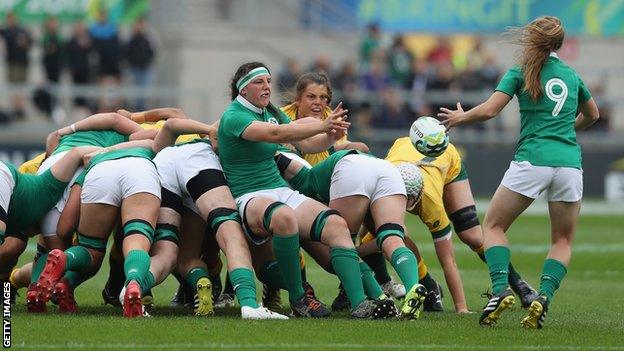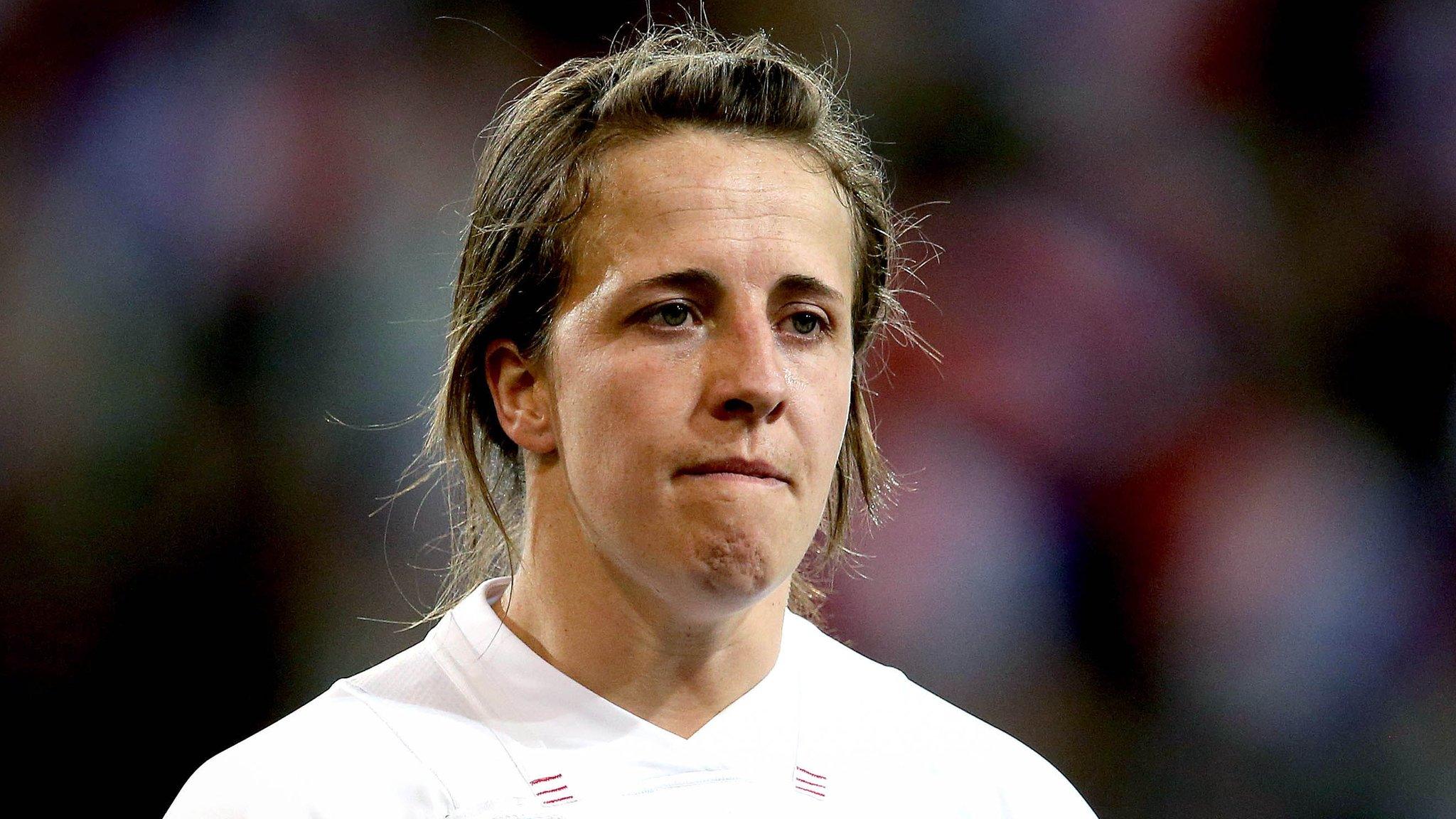Women's Rugby World Cup: Format changes announced for 2021 tournament
- Published

New Zealand defeated England in the final to win the 2017 Women's Rugby World Cup
Quarter-finals will be introduced and classification matches scrapped at the 2021 Women's Rugby World Cup, World Rugby has revealed.
The tournament length will also increase from 23 to 35 days to improve player welfare.
But the number of nations competing will remain at 12.
The introduction of quarter-finals is aimed at avoiding big rugby nations missing out on the knockout stages of the tournament.
As World Rugby officially opened the tender process for the 2021 tournament, general manager Katie Sadler said: "One of the issues that came out of the last two World Cups was the drop out of some of the top teams in the last few games.
"Putting that quarter-final in just gives you that opportunity to test the top teams more before you get to the semi-finals."
New Zealand failed to progress to the semi-finals in 2014, while hosts Ireland missed out in 2017 along with former finalists Canada.
Classification scrapped
At previous World Cups, countries that did not make the semi-finals have gone on to play in classification matches, but these will now be scrapped.
From 2021, countries that do not make the quarter-finals will be sent home at the end of the pool stage.
"It's the same with the men's competition - we did canvass all the top countries before making that call and they were fine with that decision," Sadler said.
"It's focused on high performance and that means the better teams will be there at the end."
There will be concerns that some of the less dominant women's rugby nations will miss out on the opportunity to play more Test rugby by scrapping the classification.
World Rugby said it was addressing the problem through its Women's Strategic Plan, which includes helping to develop and improve the offering of women's Test-level tournaments away from World Cups.

Ireland missed out on the semi-finals of the 2017 Women's Rugby World Cup
Squad sizes increase
Among the other changes, squad sizes will go up from 28 to 30 players.
At the 2017 Women's World Cup, many countries suffered with injury problems but Italy had a particularly long injury list and decided late in the tournament not to fly out new players. It meant a large number of the Italian squad were playing more minutes of rugby than other nations who could still rotate players.
Sadler said that the changes to both squad sizes and the length of time between games was called for by all nations.
"We got feedback that player welfare was really important and we needed to increase the days in between [games] so the changes we made to the structure and format reflect this," she said.
This also refers to women now getting a guaranteed four rest days between pool games and five or six days during the knockout stage.
Women will still have half a day less recovery time from games than their male counterparts at World Cups, if they play in every round up to the final.
The decision is an improvement on previous women's tournaments when players have regularly had just three days between matches.
At the 2019 World Cup, some men's teams will also have four days rest between games.
No increase to 16 teams
There have been calls to increase the number of teams competing at the Women's World Cup from 12 to 16 but World Rugby has ruled this out for 2021.
"We know we have some work to do, closing the gap between the bottom six and the top six," Sadler said.
"So let's focus the next four years on improving the capability of those programmes. If and when that is successful we would look at expanding the competition. It will be reviewed again in the next cycle."
World Rugby will announce the host nation for the 2021 Women's Rugby World Cup in November.
England, France, Australia and New Zealand have all expressed interest in hosting the tournament.
- Published10 March 2018
